‘They Have Ambition, They Have A Voice, They Have Sex’
The cast and crew of ‘Four More Shots Please!’ on how the characters get more real and relatable in season two
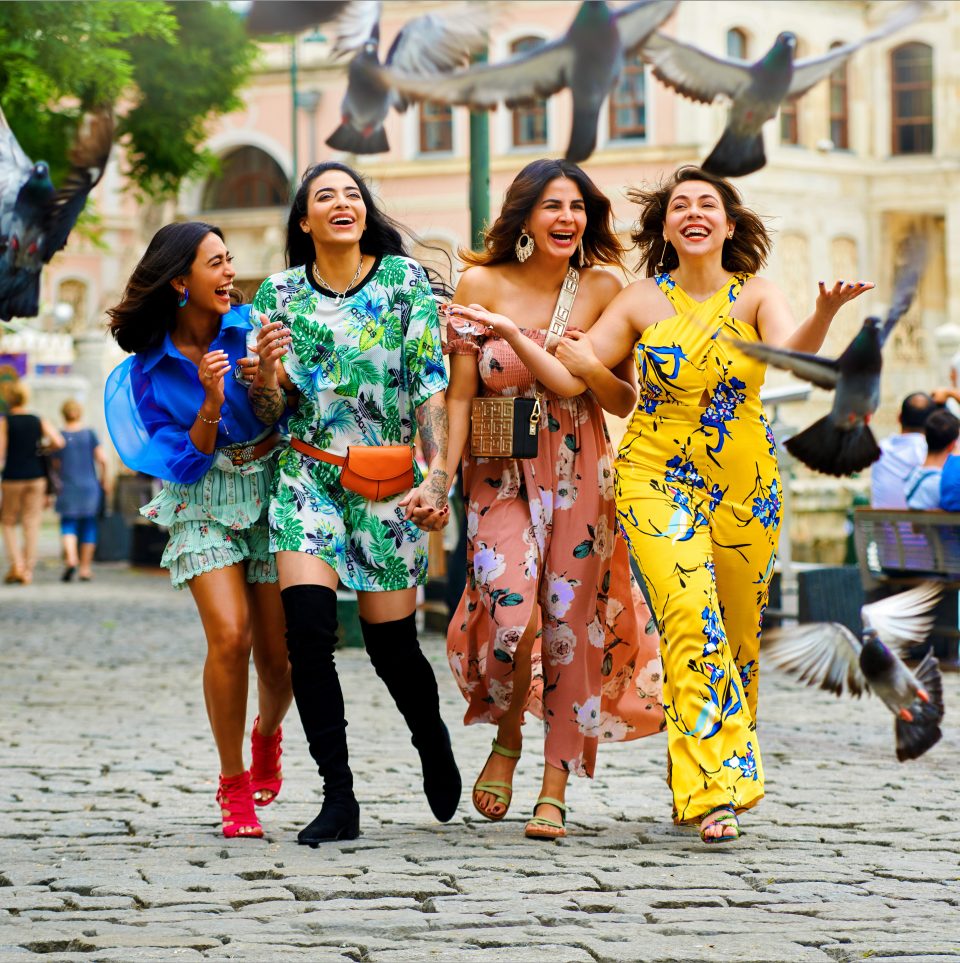
Sayani Gupta as Damini, Bani J as Umang, Kirti Kulhari as Anjana and Maanvi Gagroo as Siddhi in season two of ‘Four More Shots Please!’ Photo: Amazon Prime Video
Whether you found season one of Four More Shots Please! to be shallow, relatable or plain entertaining, you’ll probably be back for the girl gang’s shenanigans in season two. Following the lives of four Mumbai millennials, the series delves into love, ambition, choice and the city with 20 and 30-something protagonists Damini (Sayani Gupta), Anjana (Kirti Kulhari), Umang (Bani J) and Siddhi (Maanvi Gagroo) “taking big decisions while having fun,” as producer Rangita Pritish Nandy puts it.
“There’s pretty much no spectrum,” says Nandy, who was eager to shed the baggage of season one’s world-building and dive head-first into putting more flesh on the bone. As a result, Four More Shots Please! dials the drama up several notches this season–but not without peeling back the layers.
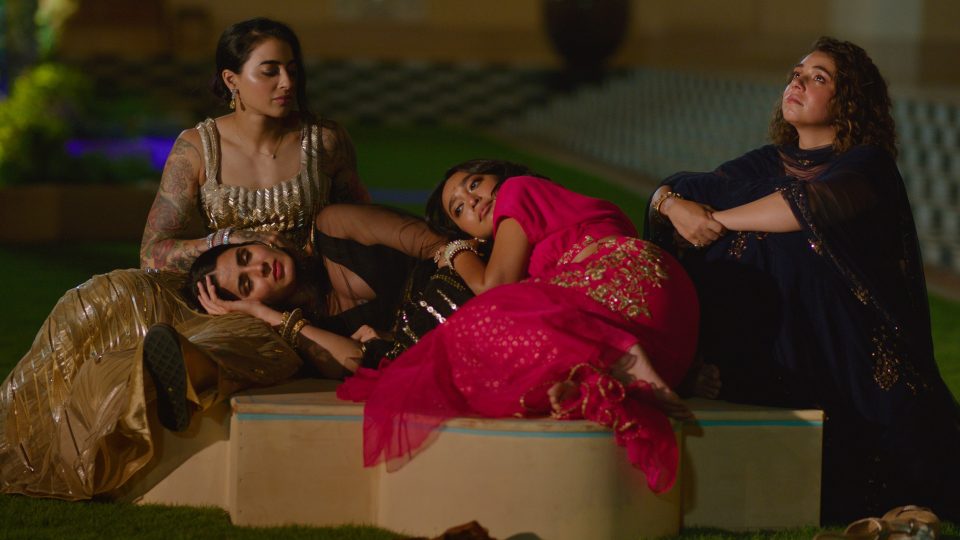
Bani J as Umang, Kirti Kulhari as Anjana, Sayani Gupta as Damini and Maanvi Gagroo as Siddhi in ‘Four More Shots Please!’ Photo: Amazon Prime Video
When we last saw the core four on screen, the women were spiraling separately. News venture founder Damini was starting from scratch; lawyer Anjana almost lost custody of her child; fitness trainer Umang had just come out (under coercive circumstances) as bisexual to her family and bride-to-be Siddhi was dealing with a major privacy violation. Season two picks up a couple of months after the bedlam with the gang reuniting post an SOS (or a pick-me-up?) call from Siddhi; the first order of business is reconciliation.

Producer Rangita Pritish Nandy says that ‘Four More Shots Please!’ is a good chapter in the history of feminism. Photo: Amazon Prime Video
“Listen, I’m not gonna bullshit you. The bottom line was that we needed to find a way to rekindle that friendship. And Istanbul was the perfect foil for it,” says Nandy about where the girls find each other at the new season’s outset. Choosing the Turkish city was not tantamount to happenstance but a conscious decision through which the writers could play with contrasts, situationally and in terms of characterization as well. “It really is a city that has so much history but also has so much that is modern. And in a sense that is so much like our girls,” says Nandy.
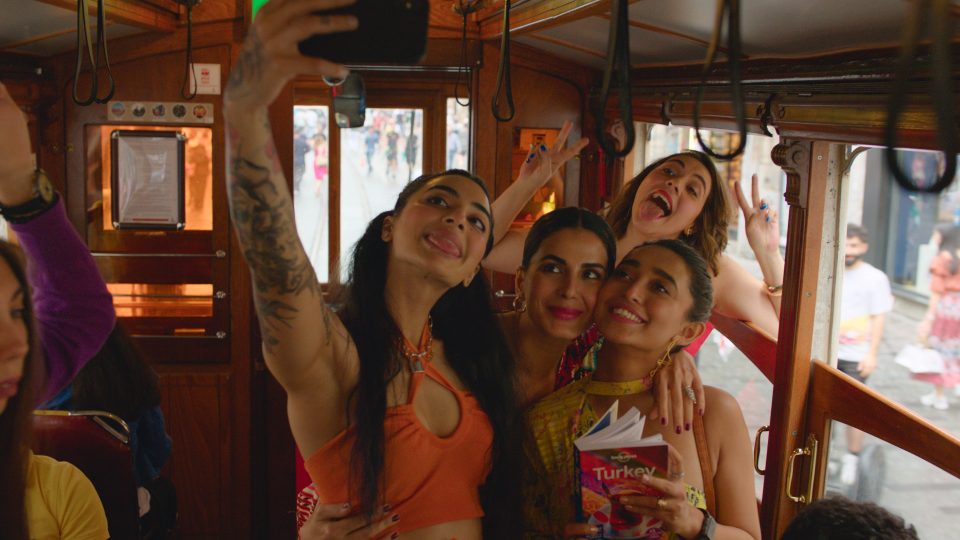
Bani J as Umang, Kirti Kulhari as Anjana, Maanvi Gagroo as Siddhi and Sayani Gupta as Damini in ‘Four More Shots Please!’ Photo: Amazon Prime Video
Season two of the Amazon Prime Video series dips into “relatable stories”–misogyny at the workplace; creativity in a hostile environment; messy, complicated relationships; imbalances of power and more–with director Nupur Asthana (who takes over from Anu Menon) bringing her vision to the helm. Says Asthana, “I wanted the show to look and sound very real; I wanted these characters to be women that we see, we are and encounter in our lives.” Whether in the writer’s room, while shooting or in post-production, the director built on the script penned by Devika Bhagat and Ishita Moitra to probe deeper into the lives of the four protagonists.
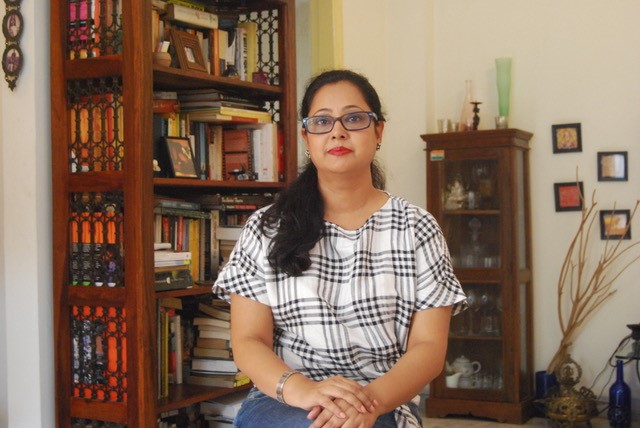
Director Nupur Asthana helms the camera for season two of ‘Four More Shots Please!’ Photo: Amazon Prime Video
Asthana along with editor Jabeen Merchant aimed to translate the constant push and pull of the women’s lives while retaining energetic and fun elements for the final cut. For this, the director worked closely with cinematographer Neha Parti to go beyond mere dynamism, opting for a visual style that was more emotional and stirring instead. “I wanted to cut closer to the bone,” she says.
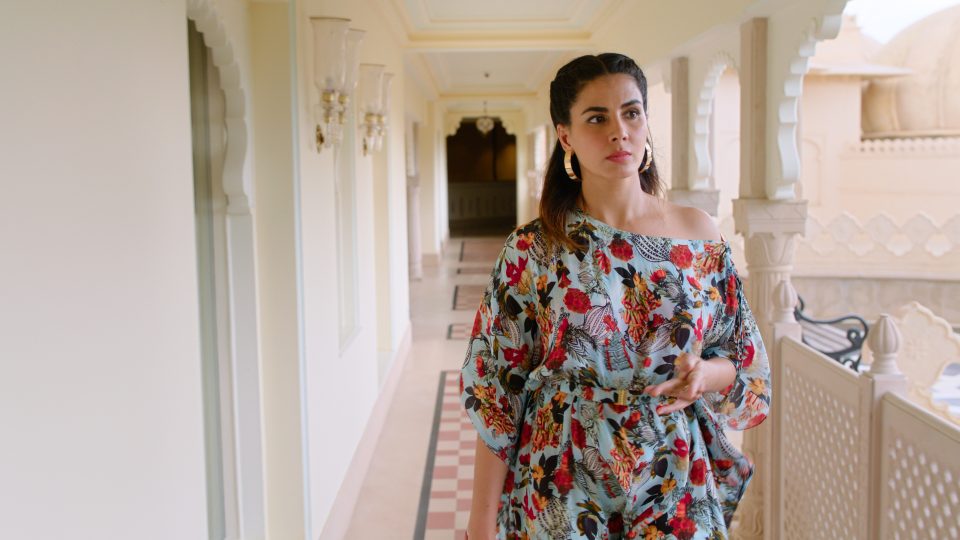
Kirti Kulhari as Anjana in ‘Four More Shots Please!’ Photo: Amazon Prime Video
As for the characters, Anjana, Damini, Umang and Siddhi, they get more “real and grounded” in season two. “Anjana [emerges] having learned some lessons from everything that she has gone through, like we all do in our life, and being better at handling certain situations. But you will also see her getting into new situations, making new mistakes and learning from them as well,” reveals Kulhari about her character’s arc. Much of the focus also shifts to the workplace for Anjana with new cases and colleagues brewing up consequences at the firm as “good and bad signs unfold all around.”
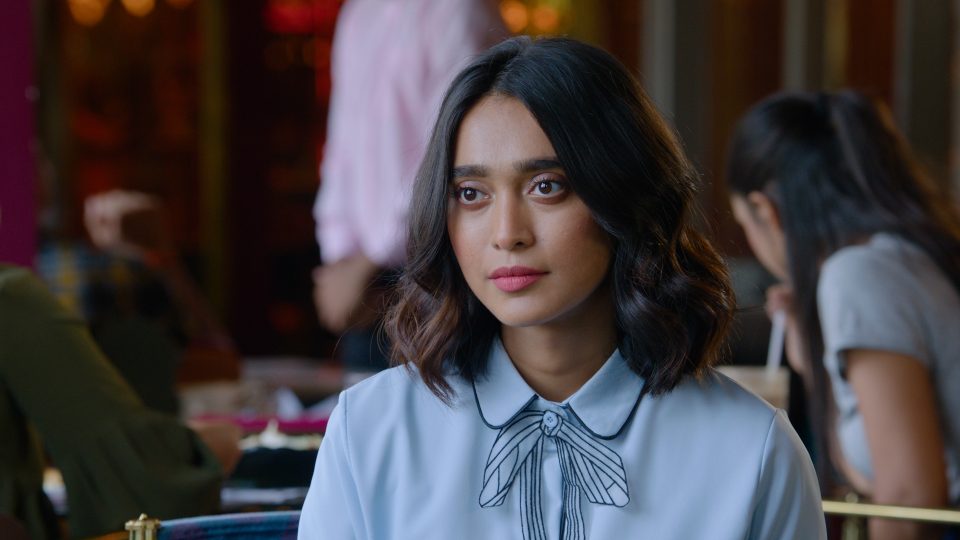
Sayani Gupta as Damini in ‘Four More Shots Please!’ Photo: Amazon Prime Video
This season, viewers will also see Damini take a step back from traditional journalism, diving into publishing, using her power and influence to stand up for justice and the people she loves. Says Gupta about her character, “She faces a lot of flack for it too. She’s scared, she’s worried, she’s going through a rough patch. There are a lot of setbacks, but she still sort of comes out of it quite victorious.” For Umang, things get more complicated and complex as the narrative moves inward and explores her personal journey of self and love, and viewers will see the character unravel and grow stronger over the 10-episode season.
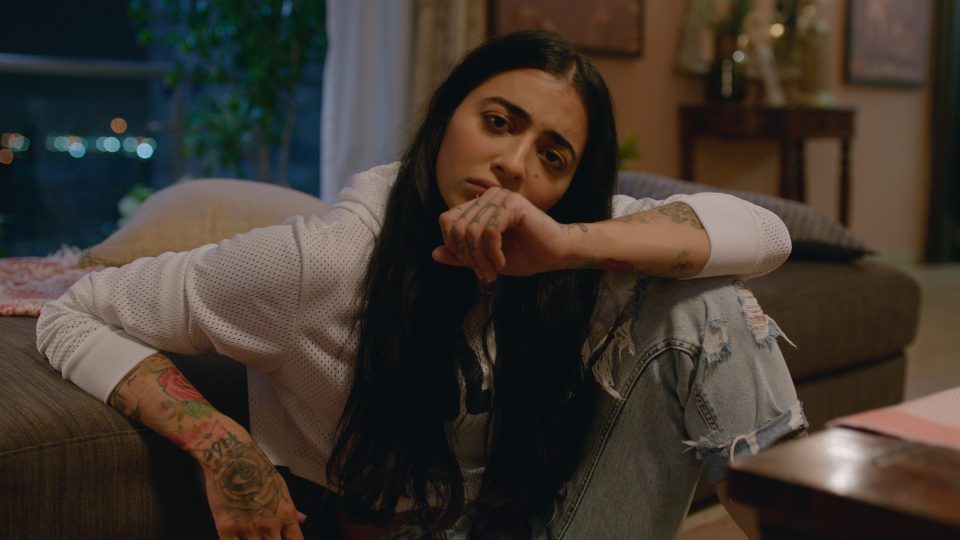
Bani J as Umang in ‘Four More Shots Please!’ Photo: Amazon Prime Video
As for Siddhi, she has no clue what her dream is but she’s hell-bent on chasing all her interests and finding out anyway–there might even be a bake-off and a secret stand-up special stacked somewhere in the mix (stay on the lookout!). “We see her go through this journey of realization that all the plans she had were plans that were laid out by others,” says Gagroo. Choice acts as a major catalyst for her character’s arc in season two and the agency that comes with it brings up interesting developments for Siddhi as she becomes more self-aware. “She realizes that she is the fuel she’s been looking for,” says Gagroo.
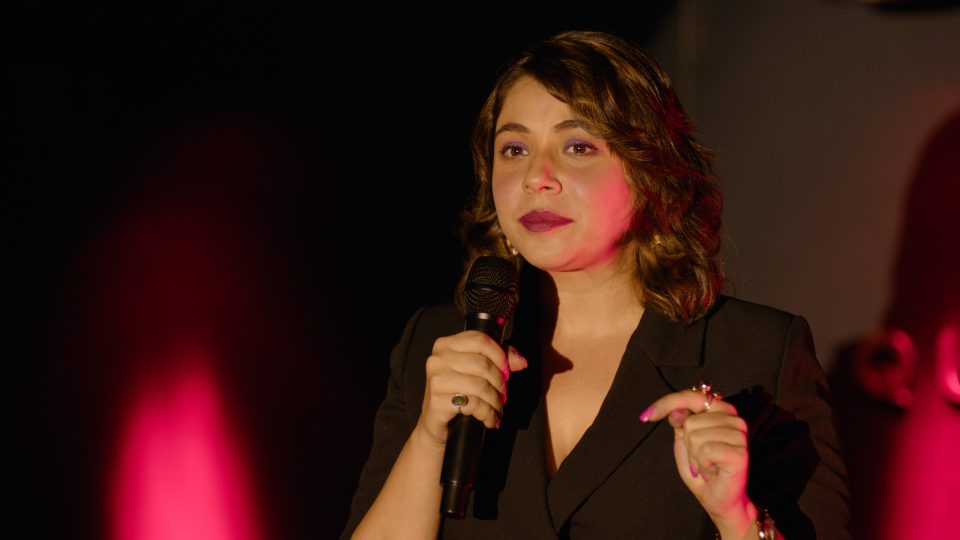
Maanvi Gagroo as Siddhi in ‘Four More Shots Please!’ Photo: Amazon Prime Video
Four More Shots Please! is a show that features four female protagonists and is spearheaded by an almost all-women team behind the scenes. Given the production background as well as the storyline that explores the themes of love, sexuality, mental health, body image, ambition, choice, cyber violence and more, the show has invited a lot of critique when it comes to the characters’ agency and privilege, and the portrayal of modern Indian women. “I think each one of us can wear our feminist T-shirts and they will be different sizes, shapes and colors. And a show that celebrates women, their choice, their voice–even if it is not the choice that you make or the voice that you would voice–is a good chapter in the history of feminism,” says Nandy about the criticism.
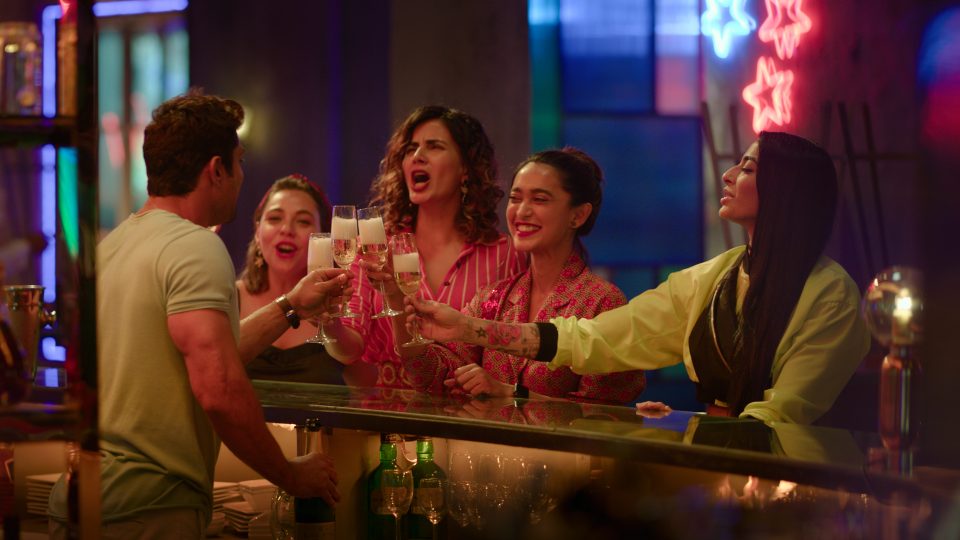
Maanvi Gagroo as Siddhi, Kirti Kulhari as Anjana, Sayani Gupta as Damini and Bani J as Umang in ‘Four More Shots Please!’ Photo: Amazon Prime Video
Having previously produced alternative films such as Hazaaron Khwaishein Aisi and Jhankaar Beats, Nandy loves the freedom that the OTT medium brings. The creator recalls the creative boundaries and restrictions she had to work under when producing for film and television, noting that streaming fosters genuine creativity. “The girls in Four More Shots Please! are living and breathing, they have ambition, they have a voice, they have sex, they do everything that Indian girls are typically forbidden from doing–not because they’re trying to go against the system, but just because they are growing up in a world where everything should be fair play. Nowhere did I have to draw the line while developing the show,” she says.



